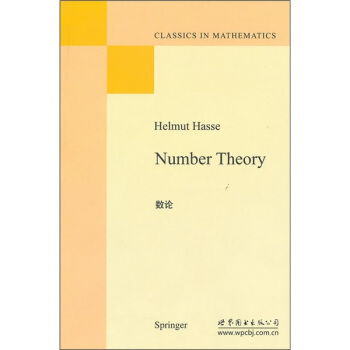![应用泛函分析(第2卷)(英文版) [Applied Functional AnalysisMa:In Principles and Their Applications]](https://pic.qciss.net/10104517/2f5abac2-6427-4f25-b218-91904c287192.jpg)

具体描述
内容简介
More precisely, by (i), I mean a systematic presentation of the materialgoverned by the desire for mathematical perfection and completeness ofthe results. In contrast to (i), approach (ii) starts out from the question"What are the most important applications?" and then tries to answer thisquestion as quickly as possible. Here, one walks directly on the main roadand does not wander into all the nice and interesting side roads.The present book is based on the second approach. It is addressed toundergraduate and beginning graduate students of mathematics, physics,and engineering who want to learn how functional analysis elegantly solvesma~hematical problems that are related to our real world azld that haveplayed an important role in the history of mathematics. The reader shouldsense that the theory is being developed, not simply for its own sake, butfor the effective solution of concrete problems.
内页插图
目录
PrefaceContents of AMS Volume 108
1 The Hahn-Banach Theorem Optimization Problems
1.1 The Hahn-Banach Theorem
1.2 Applications to the Separation of Convex Sets
1.3 The Dual Space C[a, b]*
1.4 Applications to the Moment Problem
1.5 Minimum Norm Problems and Duality Theory
1.6 Applications to Cebysev Approximation
1.7 Applications to the Optimal Control of Rockets
2 Variational Principles and Weak Convergence
2.1 The nth Variation
2.2 Necessary and Sufficient Conditions for Local Extrema and the Classical Calculus of Variations
2.3 The Lack of Compactness in Infinite-Dimensional Banach Spaces
2.4 Weak Convergence
2.5 The Generalized Weierstrass Existence Theorem
2.6 Applications to the Calculus of Variations
2.7 Applications to Nonlinear Eigenvalue Problems
2.8 Reflexive Banach Spaces
2.9 Applications to Convex Minimum Problems and Variational Inequalities
2.10 Applications to Obstacle Problems in Elasticity
2.11 Saddle Points
2.12 Applications to Dui~lity Theory
2.13 The von Neumann Minimax Theorem on the Existence of Saddle Points
2.14 Applications to Game Theory
2.15 The Ekeland Principle about Quasi-Minimal Points
2.16 Applications to a General Minimum Principle via the Palais-Smale Condition
2.17 Applications to the Mountain Pass Theorem
2.18 The Galerkin Menhod and Nonlinear Monotone Operators
2.19 Symmetries and Conservation Laws (The Noether Theorem
2.20 The Basic Ideas of Gauge Field Theory
2.21 Representations of Lie Algebras
2.22 Applications to Elementary Particles
3 Principles of Linear Functional Analysis
3.1 The Baire Theorem
3.2 Application to the Existence of Nondifferentiable Continuous Functions
3.3 The Uniform Boundedness Theorem
3.4 Applications to Cubature Formulas
3.5 The Open Mapping Theorem
3.6 Product Spaces
3.7 The Closed Graph Theorem
3.8 Applications to Factor Spaces
3.9 Applications to Direct Sums and Projections
3.10 Dual Operators
3.11 The Exactness of the Duality Functor
3.12 Applications to the Closed Range Theorem and to Fredholm Alternatives
4 The Implicit Function Theorem
4.1 m-Linear Bounded Operators
4.2 The Differential of Operators and the Fr~chet Derivative
4.3 Applications to Analytic Operators
4.4 Integration
4.5 Applications to the Taylor Theorem
4.6 Iterated Derivatives
4.7 The Chain Rule
4.8 The Implicit Function Theorem
4.9 Applications to Differential Equations
4.10 Diffeomorphisms and the Local Inverse Mapping Theorem
4.11 Equivalent Maps and the Linearization Principle
4.12 The Local Normal Form for Nonlinear Double Splitting Maps
4.13 The Surjective Implicit Function Theorem
4.14 Applications to the Lagrange Multiplier Rule
5 Fredholm Operators
5.1 Duality for Linear Compact Operators
5.2 The Riesz-Schauder Theory on Hilbert Spaces
5.3 Applications to Integral Equations
5.4 Linear Fredholm Operators
5.5 The Riesz-Schauder Theory on Banach Spaces
5.6 Applications to the Spectrum of Linear Compact Operators
5.7 The Parametrix
5.8 Applications to the Perturbation of Fredholm Operators
5.9 Applications to the Product Index Theorem
5.10 Fredholm Alternatives via Dual Pairs
5.11 Applications to Integral Equations and Boundary-Value Problems
5.12 Bifurcation Theory
5.13 Applications to Nonlinear Integral Equations
5.14 Applications to Nonlinear Boundary-Value Problems
5.15 Nonlinear Fredholm Operators
5.16 Interpolation Inequalities
5.17 Applications to the Navier-Stokes Equations References
List of Symbols
List of Theorems
List of Most Important Definitions
Subject Index
前言/序言
More precisely, by (i), I mean a systematic presentation of the materialgoverned by the desire for mathematical perfection and completeness ofthe results. In contrast to (i), approach (ii) starts out from the question"What are the most important applications?" and then tries to answer thisquestion as quickly as possible. Here, one walks directly on the main roadand does not wander into all the nice and interesting side roads.The present book is based on the second approach. It is addressed toundergraduate and beginning graduate students of mathematics, physics,and engineering who want to learn how functional analysis elegantly solvesma~hematical problems that are related to our real world azld that haveplayed an important role in the history of mathematics. The reader shouldsense that the theory is being developed, not simply for its own sake, butfor the effective solution of concrete problems.
用户评价
这本书的书名——《应用泛函分析(第2卷)》,一下子就抓住了我作为一名对数学及其应用充满好奇的学习者的眼球。 英文原版的《Applied Functional Analysis: In Principles and Their Applications》这个完整的标题,更是明确地指出了其内容的核心:既要讲解泛函分析的原理,更要聚焦于其在现实世界中的实际应用。 我个人一直对那些能够连接抽象理论与具体实践的学科领域情有独钟,而泛函分析恰恰是其中一个极具代表性的例子。 我推测,第二卷的内容会比第一卷更加深入和广泛,可能会涉及一些更高级的泛函分析工具,比如非线性泛函分析、调和分析在某些特殊应用中的推广,或者更复杂的算子理论在描述物理现象中的应用。 我非常渴望了解书中会如何具体地展示这些原理是如何被用来解决那些在工程、计算机科学、或者基础科学领域中遇到的实际挑战的。 无论是通过清晰的数学推导,还是通过生动的案例分析,我都希望这本书能够帮助我理解泛函分析的强大力量,并激发我对更深入学习和探索的兴趣。 能够阅读英文原版,也意味着我可以直接吸收最前沿的学术思想和研究成果,这对于我未来的学习和研究将具有重要的意义。
评分我是一名对数学的抽象之美和实用价值都同样着迷的学生,而《应用泛函分析(第2卷)》这个书名,恰恰抓住了我内心深处对这两方面的追求。《Applied Functional Analysis: In Principles and Their Applications》这个副标题更是点睛之笔,它承诺了不仅有坚实的理论基础,更有贴近实际的运用实例。泛函分析作为现代数学的基石之一,其概念的优雅与力量令人神往,而“应用”二字则让我看到了理论不再是空中楼阁,而是能够驱动现实世界变革的强大引擎。我猜测,这本书的第二卷,可能是在第一卷的基础上,更加深入地探讨了泛函分析在某个特定领域,或者多个交叉领域的深度应用。或许是关于某些复杂的数学模型,例如在流体力学或凝聚态物理中出现的无限维空间问题,又或者是与信号或图像处理相关的优化算法,甚至可能触及到数据科学和人工智能领域的前沿研究。我非常希望书中能够展现清晰的逻辑脉络,从抽象的定义和定理出发,一步步引导读者理解其在具体问题中的应用过程,并提供严谨的数学推导和分析。能够阅读英文原版,对我来说是进一步提升英语阅读能力和专业术语理解能力的好机会,也能让我更直接地感受到作者的思考方式和学术风格。
评分拿到这本书的书名,我脑海中立刻浮现出数学家们是如何将高度抽象的概念转化为解决实际难题的工具的画面。 “应用泛函分析(第2卷)” 几个字,让我对这本书充满了期待。 我想,第二卷很可能是在第一卷的基石之上,更进一步地探索泛函分析在工程、物理、金融等领域的深层应用。 泛函分析的精妙之处在于它能够处理无限维空间的问题,这在很多科学领域都是不可避免的。 我特别好奇书中会如何处理那些具有挑战性的实际问题,例如如何利用算子理论来分析微分方程的解的存在性与稳定性,或者如何将谱理论应用于振动分析和图像重建。 副标题 "In Principles and Their Applications" 让我认为这本书的编写风格会非常注重理论与实践的结合,既会介绍必要的数学原理,又会详细阐述这些原理是如何在实际场景中发挥作用的。 我想象着书中会有大量的图表和数学模型,帮助我更直观地理解复杂的概念。 能够读到英文原版,意味着我能够接触到最前沿的研究成果和最准确的数学表达,这对我来说是一笔宝贵的财富。
评分说实话,光是看到《应用泛函分析(第2卷)》这个书名,就足够让我心潮澎湃了。 这不仅仅是一本关于数学的书,更像是一扇通往科学与技术前沿的窗户。 泛函分析本身就是一个充满魔力的领域,它用一种极其优雅的方式概括了无穷维度空间的结构和性质,而“应用”二字则赋予了它强大的生命力。 我猜想,第二卷的内容会在第一卷的基础上,更加深入地挖掘泛函分析在诸如量子计算、金融衍生品定价、生物医学信号处理、甚至是一些新型材料的理论设计等方面的实际应用。 我对书中会如何阐述这些复杂应用场景背后的数学原理非常感兴趣,比如如何通过泛函分析的方法来理解和构建复杂的数学模型,如何利用其强大的工具来分析和解决实际问题,以及如何进行数值模拟和算法设计。 英文原版对我来说意味着我可以直接学习到最权威、最精确的数学知识,并且能够更好地理解国际学术界的最新动态和研究方法。 我期待这本书能够给我带来全新的视角和启发,让我对数学在现代科技发展中的作用有更深刻的认识。
评分这本书的名字让我对它产生了极大的兴趣,虽然我还没有开始阅读,但光看书名,我就能想象到它在数学领域所扮演的重要角色。“应用泛函分析”本身就是一个极具吸引力的方向,它连接了抽象的数学理论与现实世界的各种应用,而“第2卷”则暗示了其内容的深度和广度,可能涵盖了更高级、更精深的理论以及更广泛的应用领域。我期待着它能深入浅出地讲解泛函分析的核心概念,比如Banach空间、Hilbert空间、算子理论等等,并且重点在于“应用”,这意味着书中不会止步于理论的阐述,更会着重于如何将这些强大的数学工具运用到解决实际问题中。我非常好奇书中会涉及哪些具体的应用领域,例如量子力学、偏微分方程、信号处理、机器学习,还是其他更前沿的学科?不同的应用场景往往需要不同的数学视角和技巧,我希望本书能够在这方面提供详实的案例和分析,让我能够窥见数学的魅力如何体现在科学技术的进步之中。英文原版也是我所喜欢的,这意味着我可以接触到最原汁原味的数学表达和研究思路,而不必担心翻译过程中可能出现的细微偏差。总之,在翻开书页之前,这本书在我心中已经是一个充满知识宝库的神秘盒子,我迫不及待地想去探索它里面的奥秘。
评分一直在京东买书,今天下单明天就到,直接送货上门,特别方便,价格也比实体店要优惠很多,而且书都是正版的,质量很不错,给京东点赞。
评分内容和印刷都很好,值得购买
评分拓扑线性空间的定义就是一个带有拓扑结构的线性空间,使得线性空间的加法和数乘都是连续映射的空间。
评分在巴拿赫空间中,相当部分的研究涉及到对偶空间的概念,即巴拿赫空间上所有连续线性泛函所构成的空间。对偶空间的对偶空间可能与原空间并不同构,但总可以构造一个从巴拿赫空间到其对偶空间的对偶空间的一个单同态。
评分qi dai yi jiu a
评分作者是泛函分析的大家,还写了一套非线性泛函分析,值得买!
评分由于泛函分析源自研究各种函数空间,在函数空间里函数列的收敛有不同的类型(譬如逐点收敛,一致收敛,弱收敛等等),这说明函数空间里有不同的拓扑。而函数空间一般是无穷维线性空间。所以抽象的泛函分析研究的是一般的(无穷维的)带有一定拓扑的线性空间。
评分泛函分析是20世纪30年代形成的数学分科,是从变分问题,积分方程和理论物理的研究中发展起来的。它综合运用函数论,几何学,现代数学的观点来研究无限维向量空间上的泛函,算子和极限理论。它可以看作无限维向量空间的解析几何及数学分析。泛函分析在数学物理方程,概率论,计算数学等分科中都有应用,也是研究具有无限个自由度的物理系统的数学工具。
评分内容和印刷都很好,值得购买
相关图书
本站所有内容均为互联网搜索引擎提供的公开搜索信息,本站不存储任何数据与内容,任何内容与数据均与本站无关,如有需要请联系相关搜索引擎包括但不限于百度,google,bing,sogou 等
© 2026 book.teaonline.club All Rights Reserved. 图书大百科 版权所有

![基础数论(英文版) [Basic Number Theory] pdf epub mobi 电子书 下载](https://pic.qciss.net/10184575/af663a0f-1dcd-436b-b472-36efed609e5f.jpg)




![有限群的线性表示 [Linear Representations of Finite Groups] pdf epub mobi 电子书 下载](https://pic.qciss.net/10096494/80e66ed0-32ef-4080-b176-3087bdeabdac.jpg)
![现代数学物理方法(第2卷) [Methods of Modern Mathematical Physics II] pdf epub mobi 电子书 下载](https://pic.qciss.net/10914333/549a7b59Nb9f42b6f.jpg)
![中外物理学精品书系·引进系列(29):等离子体光谱学导论(影印版) [Introduction to Plasma Spectroscopy] pdf epub mobi 电子书 下载](https://pic.qciss.net/11300130/rBEhWVIUU-wIAAAAAAKp_QZeitkAACR6ACZr94AAqoV532.jpg)




![李群论(英文版) [Theory of Lie Groups] pdf epub mobi 电子书 下载](https://pic.qciss.net/11142975/rBEHZVDH9-YIAAAAAAb2zyD06vgAADO5gJXIjAABvbn900.jpg)





![物理学经典教材:统计力学(第2版) [Statistical Mechanics Made Simple 2nd Edition] pdf epub mobi 电子书 下载](https://pic.qciss.net/11004216/rBEIC0_NW0EIAAAAAACQunZ2JpEAAAYvAJ-Zb8AAJDS740.jpg)
